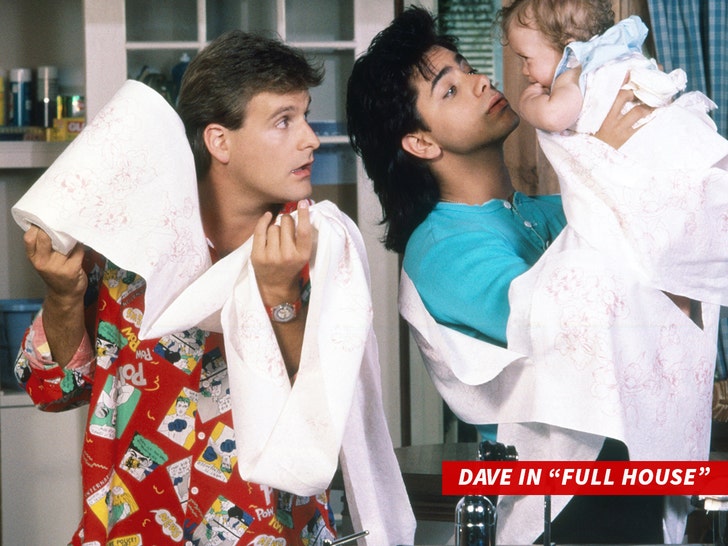Entertainment
How A Movie Ruined The 1990s By Making Everyone Obey
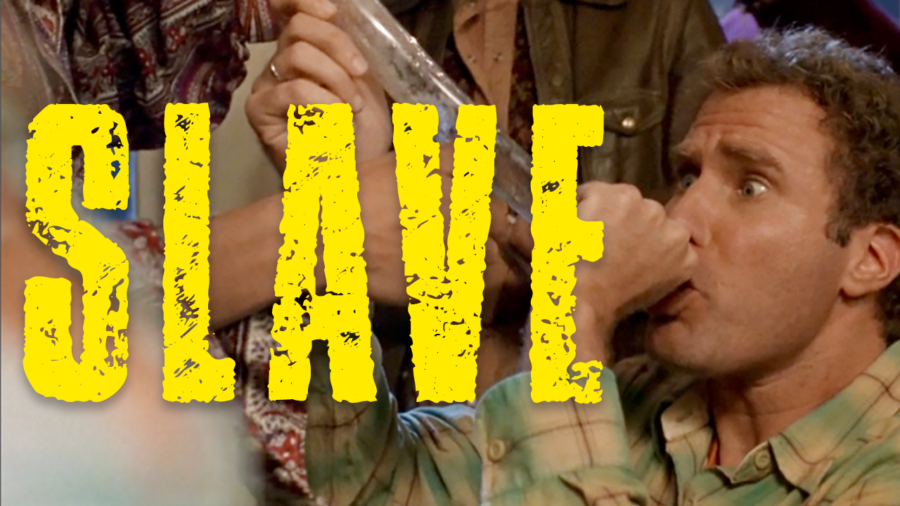
By Joshua Tyler
| Updated

The 1990s are now, in the minds of many, supplanting the 1950s as humanity’s golden age. The internet was still in its earliest form, the economy was booming, and so was American innovation and culture.
In 1994, at the very center of that era was one blockbuster movie that the entire world rushed to fawn over. A supposed tale of optimism and high hopes, a recontextualizing of the path America had taken to reach a bright and shining future, as told through the lens of one very stupid man.
Or that’s what the film seemed to be. In reality, it may have been the first big step towards decline. Whether you knew it or not, while watching Forrest Gump, you were being screenwashed.
Forrest Gump’s Philosophy Of Total Obedience
Forrest Gump begins with a feather floating on the breeze. It has no weight, no impact, and no agency. The feather goes wherever the wind blows it, without complaint, confident that it’ll all work out in the end.
Life is like a box of chocolates, you never know what you’ll get out. Life is like a feather floating on the air. There’s no way of knowing which way the wind is blowing; all you can do is let it move you.

There’s no way of knowing what you’re putting in your mouth, so just keep eating and accept whatever touches your tongue next.
It’s a philosophy of total obedience and an abandonment of agency, a rejection of responsibility, and it’s something no normal human would ever agree to. Which is why it’s easy to dismiss Forrest Gump as just a movie.
To make that kind of insane message stick, you’d need to go far beyond a speech about a box of chocolates into a world of secret, weapons-grade psychological persuasion. So that’s exactly what Forrest Gump did.

Let’s start this by saying Jenny is at the center of everything, but it’s not because she’s a secret villain, which is the standard edgy Forrest Gump take. She’s not a secret villain at all, she’s an open villain, but a villain made to serve a secret purpose.
Before I explain that, you need to understand the movie itself.
Forrest Gump Triggers Emotional Reactions To Make The Audience Suggestible
Forrest Gump is beautifully made and sold as a feel-good fable about kindness and decency. It’s so good at being emotional and at making the audience feel that it’s almost impossible to see what it’s doing through the tears. And that’s exactly why it works.
While training to be a hypnotist, most of my earliest lessons revolved around how to trigger someone into a suggestive state. One of the best and most effective ways is by creating an emotional reaction. Psychologists sometimes call this emotional priming. Emotional priming takes advantage of the fact that strong emotion impairs critical thinking and increases suggestibility.

One of the most unique things about Forrest Gump is its structure. It’s not one, continuous narrative. Instead, it’s a series of short vignettes, set at different times in the life of Gump.
Each Vignette starts a story, and then ends with a swelling emotional scene. It’s timed so that as each new segment begins, the audience is in a strong emotional state created by the last one.
We feel Forrest’s shame as he’s mocked for being dumb. Fear in the jungles of Vietnam. Unbearable grief at the death of his mother. With the audience constantly primed, Forrest Gump then uses that to deliver something insidious: a morality play where obedience is rewarded and independent thought is punished.
All of that is then wrapped in nostalgia and empathy so thick you’re not supposed to notice.
Forrest Gump As A Compliance Exercise
From the start, Forrest Gump is a rule follower, no matter how bad the rules are around him. The movie starts with Forrest relaying things his mother told him and explaining how he followed her instructions.
The entire movie becomes a compliance exercise for Forrest Gump, a man who never questions anything, and a script that makes that work for the audience by portraying him as a person of limited intelligence.

Of course, Forrest just complies; he’s not smart enough to do anything else. But why Forrest complies isn’t as important from a persuasion perspective as the fact that he does comply, and the movie gets viewers to cheer for his compliance.
Forrest succeeds because he does exactly what he’s told. Not metaphorically. Literally.
Run, Forrest. He runs.
Join the army. He joins.
Play ping-pong. He plays.
Invest in shrimp. He invests.
Forrest never questions instructions from anyone. He never resists authority. He never evaluates outcomes. He doesn’t even really choose. He complies, and the universe showers him with rewards. Wealth. Fame. Love. Respect. A charmed life delivered one order at a time.

The film frames this as innocence. But structurally, it’s perfect obedience.
Obedience to his mother and Jenny. Obedience to the state that sends him to die in the jungle and then to play ping pong. Obedience is Forrest Gump’s entire life. He has no agency, and it’s celebrated.
One of the only moments where Forrest shows any agency is in a failed attempt to rescue Jenny, who he sees making out with a boy in a car and mistakenly thinks she’s being harmed. She yells at him, tells him he’s wrong.
So it’s right back to doing what he’s told. In that moment, after he apologizes and returns to compliance, Jenny rewards him by taking off her top.
Forrest Enters A Holding Pattern When There’s No One To Obey
When Forrest’s mother dies, and he runs out of people to obey, Forrest spends his time mowing lawns. Back and forth, back and forth, locked in a holding pattern while he waits for his next command.

When Jenny leaves him, that pattern repeats. Forrest starts running. Back and forth, back and forth, awaiting his next instructions. Like a feather being blown about by the wind.
Moral Laundering And Forrest Gump
Forrest Gump’s character is a textbook example of a persuasion technic call Moral Laundering. In Moral Laundering, an unpopular or contested idea is made more acceptable by attaching it to a trusted, heroic, or morally admired figure, allowing the figure’s perceived virtue to transfer onto the message.

Moral laundering alone wouldn’t be enough to screenwash an audience into viewing total compliance as optimal. So the film provides a contrast to our obedient hero, using our old friend, Poisoning the Well.
Poisoning the Well is a concept we’ve talked a lot about on Screenwashed, and it’s the polar opposite of Moral Laundering.

In Poisoning the Well, you have a villain say something good, to make people think that the good thing is as villainous as the person saying it.
Both Moral Laundering and Poisoning the Well take advantage of moral asymmetry.
Moral asymmetry is the tendency of humans to judge the same behavior as morally acceptable or unacceptable depending on who commits it, rather than on the behavior itself.

Forrest Gump is used to launder the idea that total obedience is an optimal behavior pattern, while another character poisons the well against thinking for yourself. Who’s the ultimate free thinker in Forrest Gump? Jenny.
Jenny’s Refusal To Follow Rules Unlocks Forrest Gump’s True Intention
From the moment we meet Jenny, she refuses to obey and follow the crowd. Forrest is getting picked on by the kids around him. Jenny has none of it; she defies the bullies’ authority and befriends him.

Throughout the movie, Jenny questions. Jenny rebels. Jenny does the unexpected. When she faces abuse from an authority figure, she gets away from it. She rejects traditional paths. She challenges authority. She experiments with politics, sex, and culture.
For that, the movie destroys her. It destroys her narratively by making her life a disaster, but it also destroys her in the eyes of the audience by making her a villain. It does that by having her express her independence through actions and ideas that most of the audience will find intolerable, and then turning her relationship with Forrest into one where she takes advantage of him.

The movie makes Jenny a villain on purpose, not accidentally, as some commentators seem to assume. Every time Jenny exercises agency, the film punishes her with escalating consequences: abuse, addiction, illness, and isolation. Her curiosity is framed as recklessness. Her defiance is reframed as self-harm. Her independence becomes pathology.
This is not subtle storytelling. It’s conditioning.
Jenny’s Suffering Only Ends When She Complies
The movie pretends Jenny’s suffering is the result of “bad choices,” but it carefully rigs the game so every choice outside obedience leads to pain. There is no version of Jenny’s life where thinking for herself works out. The audience is trained, scene by scene, to associate her autonomy with disaster.

Worst of all, Jenny is redeemed only when she stops rebelling.
She returns home. She settles down. She becomes quiet. Sick. Dependent. Her independence is stripped away, and only then is she allowed happiness. Only briefly, before she dies.
The message is unmistakable: a person who thinks for themselves must be broken before they can be accepted.

Forrest, meanwhile, never changes. He doesn’t grow. He doesn’t learn. He is rewarded precisely because he remains unchanged and never exercises any agency. He never thinks for himself. He always obeys.
This isn’t an accident. It’s a narrative machine built to make submission feel virtuous and independence feel dangerous.
Forrest Gump Wants You To Think You Have No Agency
In the movie’s final moments, Forrest tells the audience that there are only two possibilities to life: that everything is destiny or everything is random. Either possibility has the same commonality: you have no agency, you have no say in anything that happens to you. By the time the feather floats away, the audience has been trained to believe those two realities are the only possibilities, and that the best way through life is to follow orders, trust the system, and never ask why.

Life is a box of chocolates, and Forrest Gump teaches you to sit back and let life put whatever it wants in your mouth. So you cheer for the person who never questions. You mourn the person who does. You walk away thinking that’s just how the world works and there’s nothing anyone can do about it.
Congratulations, obedient slaves, you’ve been screenwashed.
Entertainment
Day Trip Essentials for When You’re Broke

Economy’s Trash … Flights Are a Joke
What You Need for Mini Getaways
Published
TMZ may collect a share of sales or other compensation from links on this page.
We’ll be real here … the economy’s not in a great spot right now, and not all of us have the bread to go sun ourselves at one of the places where they filmed “The White Lotus” when we’ve got time off.
If you need a solution we’ve got one for you: day trips are the way to go! Gas up the car, let someone know where you’re going, and let the open road be your travel buddy as you broaden your horizons.
The thing is, you’re always better off with gear on these trips … and we’ve put together a list of travel accessories that should elevate your travel experience from stunning to stylish — effortlessly so, we should add.
TMZ Cheatsheet: Essentials For Effortlessly Memorable Day Trips
Just because you’re going into the great outdoors doesn’t mean you should leave the essentials at home, and we think this crossbody bag from The North Face is the perfect way to carry them when you finally get out of your car and get a breath of fresh air.
Strap this sucker over your shoulder, make sure your car’s locked, and you’re pretty much all set to let your imagination handle the rest on your trip.
Portable Phone Charger
You know the only thing worse than running into poison oak when you’re roughing it through Big Sur? Not having any charge left in your phone to Google what to do about it!
Don’t worry, though, this sleek and stylish portable phone charger is the perfect fix for tough times like those … this little guy can really save lives.
If you’re going to be spending long stretches of time on the road, having solid eye protection is going to be way more important than you think in getting you where you wanna go.
That’s where these Ray-Ban Wayfarer sunglasses come in … these OGs should keep the sun out of your eyes while you conquer the open road — and you’ll look great doing it, too!
Dehydration is so overrated — especially when you’re off-roading out in Joshua Tree and your head starts to hurt because you forgot your water at home!
Listen, we’ve been there, and we wish we would have had this Hydro Flask with us when it happened … you best believe we learned our lesson!
There’s a lot of ground to cover out there in the great outdoors, and we wanna make sure you look sharp the whole time … hence these New Balance sneakers.
These things can stand up to a whole day of sightseeing — and they’re not hard to stand on for a whole day, either!
Shisedo Clear Sunscreen Stick
UV damage is no joke, and we don’t want you getting too well done when you’re soaking up the sun out there — we think giving this clear sunscreen stick from Shisedo would be a pretty solid move for your outdoor excursions.
We know you’ve probably got your skincare routine all figured out, and this shouldn’t mess with it too much … just pop it into your crossbody bag, pull it out when the sun’s a little too intense for you, and keep those wrinkles away!
Need something to cap off your outfit when you’re getting ready to head out on your day trip? We’d suggest this neutral dad hat for adding a little extra something-something to your wardrobe, especially if you’re gonna be out in the sun.
Plus, these things come in plenty of different colors, so if you need to change up your ‘fit just a bit, get a few and keep them in your car to switch your look on a dime!
Entertainment
General Hospital: Chase’s Dangerous Obsession with Willow Destroys His Life!

General Hospital sees Harrison Chase (Josh Swickard) still totally fooled into thinking that Willow Tait (Katelyn MacMullen) is innocent. It looks like him being so naive about her is about to ruin everything for him—first his career and soon, maybe, his marriage to Brook Lynn Quartermaine (Amanda Setton).
We’re going to talk about how Chase and Brook Lynn might fall apart soon. Because even though Willow was found not guilty, Chase isn’t going to stop. He also wants to prove that Michael Corinthos (Rory Gibson)’s guilty, which would fully confirm her innocence.
Willow’s Shocking Transformation on General Hospital
At one point, I think we can all agree Willow did seem like a decent human being. But that was before Drew Cain Quartermaine (Cameron Mathison) got his claws into her. Now Willow is getting worse by the day. I suspect everybody in Port Charles is going to know the truth about her eventually, but I’m not sure Chase will ever believe that she’s bad. Ever since Willow was accused of shooting Drew, we’ve seen Chase as her biggest champion. He has defended Willow left and right.
Chase Risks Everything for Willow on GH
Chase was investigating the shooting in his own time to try and prove Willow is innocent, even while the PCPD was building a case against her and had some pretty good evidence. Bottom line, Chase put his career on the line by taking Willow’s side.
Chase was adamant that it was worth it to prove that Willow was framed. To be fair, Chase was thoroughly convinced that Michael not only shot Drew but framed Willow for his crime. Now, Chase has ruined his friendship with Michael because of this false assumption of Willow’s innocence.
Even worse, Chase has also just about ruined his friendship with Dante Falconeri (Dominic Zamprogna), who was his best friend. He defended Willow and accused Dante of bias and of protecting his brother, Michael, at all costs. When Chase was on the stand at Willow’s trial, he was really hard on Dante.
We saw Chase saying under oath at the trial that he thinks the PCPD went about the investigation the wrong way. Chase said they didn’t investigate anybody else; they targeted Willow. Of course, Dante was furious and so was DA Justine Turner (Nazneen Contractor).
The Fallout of Chase’s Demotion to Beat Cop
After that, Chase got demoted back to beat cop and now his professional future is at risk. It’s kind of sad because Willow is 100% guilty and Chase is totally wrong about her. We all know Willow is headed down an even darker path.
Once her twisted secrets come out, Chase is going to look like an even bigger fool. Once all the ugly truth comes out, it is going to be egg on his face. If you remember, this Willow fiasco isn’t the first time Chase jeopardized his career as a cop over a woman.
He did it before—and not just any woman, mind you, but Willow’s awful twin sister, Nelle Benson (Chloe Lanier). This was part of Chase’s pre-Port Charles history. Back in the day, before Nelle also wound up in Port Charles, she killed somebody close to her.
Chase was assigned to work the murder case of Nelle’s fiancé, Zachary Grant, down in Florida. The guy had money and Nelle convinced him to push his family away and leave everything to her in his will. Then Nelle killed her fiancé and tried to make it look like a kayaking accident.
History Repeats Itself with Wicked Twins Nelle & Willow
The entire family swore that Nelle had killed him, but she swore she was innocent. Then Chase got assigned to the case and Nelle seduced him into believing her. Chase fell for Nelle’s innocent act.
Chase was wrong then, too, because Nelle was guilty just like Willow is now. But Chase has been telling anybody who will listen that Willow is innocent and she isn’t the kind of person that could shoot somebody. It turns out Chase is very wrong.
Willow has changed. At this point, she’s pretty much pure evil. Chase got suckered by one twin, Nelle, and now the other twin, Willow, has him thoroughly fooled and all twisted up.
This week we’re going to see Brook Lynn upset at Chase. She confronts him because it doesn’t seem like it’s enough for him that Willow was acquitted at trial. Chase really wants Michael to go down for this. They even came to blows over it.
Brook Lynn Reaches Her Breaking Point on General Hospital
BLQ is ranting at Chase and asking, “Why won’t you let this go?” I think he’s also being insensitive to his wife because Willow’s twin sister, Nelle, is the reason Brook Lynn can’t sing anymore. Do you remember that? Nelle slashed Brook Lynn’s throat backstage at the Nurses Ball several years ago.
That’s not on Willow, that’s on Nelle, but Chase got played by Nelle and now he’s getting played by Willow. Chase seems willing to ruin his career over Willow. Unless he does something drastic to alter the course he’s on, Chase is going to ruin his marriage over Willow also.
The bottom line is Chase should be putting his wife first before anybody else. Instead, Chase keeps putting time and energy into trying to prove Michael’s guilt. It is as if it’s not enough that the jury found Willow not guilty.
In the end, Chase is going to look like the biggest fool in the world when the final truth comes out. I suspect that’ll happen sooner rather than later because Willow’s current scheme to frame Michael for shooting Drew is going to blow up in her face.

Will Chase Exit Port Charles?
That is confirmed in General Hospital spoilers. In the end, I think Willow is going to be exposed for shooting Drew but can’t be arrested for it since she already faced trial. However, Willow could be prosecuted if they find out she caused Drew’s stroke.
I’m hoping she’s also busted for messing with baby Daisy and driving Sasha Gilmore (Sofia Mattsson) out of the country. In the short run, Willow’s plot to frame Michael may gain traction, especially after she slipped Drew’s spare key onto Michael’s key ring.
I’m sure Chase is going to feel justified for a while. He may push back on Brook Lynn and tell his wife, “Look, see, I was right. It was Michael.” But eventually, Willow’s lies are going to catch up with her. Her world’s going to come crashing down and Chase is going to look like an idiot for defending Willow.
Chase Eats Crow on General Hospital
Chase is going to owe Michael, Dante, and most of all his wife Brook Lynn an apology for his actions. All this has Chase and BLQ’s marriage on a rocky path. Part of that is down to Chase wanting to adopt and Brook Lynn continuing to push back and put those plans on hold.
I suspect things are going to get worse for Chase and Brook Lynn until Willow is finally exposed. All of this may be setting the stage for Josh Swickard’s exit from General Hospital. We reported a leak from a reliable source a while back that said Chase was going to be written off GH and Swickard would be exiting.
Now that Dante suspended Chase and he got busted down to beat cop, he’s thinking of leaving law enforcement. You would think after Nelle snowballed Chase that he would learn to be more cautious, especially around women from this gene pool.
In the end, I am really afraid that Chase is going to ruin his life and his marriage over this Willow fixation. It could cost Chase everything. I think all that could be to lay the groundwork for his character’s exit. We’ll see.
Entertainment
Perfect, R-Rated 1970s Crime Thriller Is A Heist Turned Media Circus
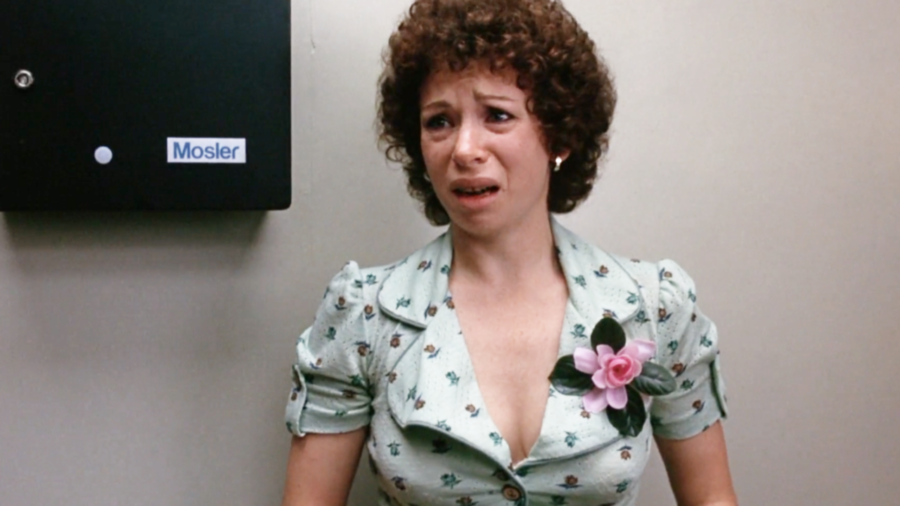
By Robert Scucci
| Published

After watching 1975’s Dog Day Afternoon critically, and for the first time as an adult, I might have to go out on a limb here and say that Al Pacino is my favorite comedian. I remember passively watching this one on cable when I was a kid, but the minor details were fuzzy, and I was long overdue for a proper rewatch. I could give you the usual spiel about how Dog Day Afternoon is based on a real-life hostage situation orchestrated by John Wojtowicz and Salvatore Naturile, but I’ve made my feelings clear about how source material is used countless times, and that applies here as well.
Fully understanding that creative liberties are always taken in this context, I’m simply here to watch a movie for entertainment’s sake, and I’m actually disappointed with myself for not getting to this one sooner. It’s billed as a biographical crime drama for obvious reasons, but it’s funnier than it has any right to be thanks to Al Pacino’s portrayal of a bank robber who is completely out of his depth. If anything, it plays more like a comedy of errors, where each escalation creates even more unintended spectacle.
Failure To Prepare Is Preparing To Fail

Dog Day Afternoon wastes no time getting into its heist, and it deliberately avoids showing any of the planning that took place beforehand. You’ll soon see why, because it’s painfully evident that Sonny Wortzik (Al Pacino), Sal Naturile (John Cazale), and Stevie (Gary Springer) are grossly unprepared to rob the First Brooklyn Savings Bank in every conceivable way. For starters, they clearly didn’t do any kind of loyalty test, because Stevie immediately changes his mind and bolts.
Sonny then struggles to pull his gun out of the flower box he used to smuggle it inside the bank, which does nothing to make him look intimidating. He’s further humbled when he realizes the bank already completed its daily cash pickup, leaving him and Sal with just over a thousand dollars to show for their efforts. Frustrated, Sonny sets fire to the bank’s ledger, which attracts outside attention and quickly results in the police surrounding the building. With no exit strategy, Sonny and Sal are forced to hold everyone hostage while they try to figure out what to do next.

As the hours tick by, the press becomes an increasingly dominant presence outside, and Detective Sergeant Eugene Moretti (Charles Durning) urges Sonny to step out for negotiations. Sonny, having no real grasp on bank robbing protocol, insists on running everything by Sal first. Through these conversations, Sonny’s true motive comes into focus. He was trying to raise money for his lover Leon’s (Chris Sarandon) gender reassignment surgery, only to learn that his actions may have made Leon an accessory to the crime.
Pacino’s Comedic Timing Is Next Level
Before Sonny starts making demands for a jet to stage his escape, Dog Day Afternoon truly shines thanks to how Pacino carries himself throughout the ordeal. Sonny is borderline bumbling in his attempts to control the situation, and it’s the small throwaway moments that really sell it. When a hostage asks if they can use the bathroom, Sonny casually asks another teller where the bathroom is. That’s not a question a competent bank robber should ever be asking, because a competent one would have cased the place weeks or months earlier.

Whenever Sonny is presented with a counteroffer to one of his demands, he averts his eyes and mutters that he needs to consult with his partner before locking the bank down again. The earnestness behind Pacino’s portrayal of a man who is wildly unqualified for the situation lands so well because of how seriously he plays it. The humor is further amplified by just how bored the hostages seem to be. They quickly realize they’re not in immediate danger and mostly just wait things out, humoring Sonny as he continues to dig himself deeper.

Holding a near-perfect balance between crime thriller and comedy of errors, Dog Day Afternoon remains such a satisfying watch because of how fully Al Pacino commits to the premise. In Sonny’s mind, this is deadly serious business. For the audience, the comedy comes from watching someone this ill-equipped try to control a situation that keeps slipping further away from him, and it’s still a joy to watch unfold over 50 years later.

Dog Day Afternoon is streaming for free on Tubi as of this writing.
Entertainment
“Baldur's Gate” TV series hailing from “The Last of Us” co-creator Craig Mazin in the works at HBO
:max_bytes(150000):strip_icc():format(jpeg)/Baldurs-Gate-3-Game-Cover-020526-59df8ee78f734c36acd5f9f91a2eef36.jpg)
The most recent game, “Baldur’s Gate 3,” launched to massive critical and commercial success and cites over 15 million lifetime players.
Entertainment
Bold and the Beautiful: Liam Turns on Bill in Ultimate Betrayal!?!

Bold and the Beautiful stuns as Liam Spencer‘s (Scott Clifton) jaw drops at the shocking news that Eric Forrester (John McCook) is Katie Logan‘s (Heather Tom) new lead designer. Liam has now been sworn to secrecy by his dad, Bill Spencer (Don Diamont), and also at Eric’s insistence. However, I doubt Liam is going to be able to keep the secret.
We’re going to talk about why Bill may be disappointed soon when Liam betrays them all by blabbing the big secret.
Liam in Shock on Bold and the Beautiful
To me, it was kind of low-key funny when Liam strolled into Bill’s office at Spencer Publications right as Eric, Katie, and Bill were looking at Eric’s sketches and discussing the wow factor they see there. It probably would have flown under the radar, but Liam saw them all, and they just kind of froze. They all looked so guilty, like they had been caught at something.
The Surprise Encounter at Spencer Publications
It was also pretty funny to see Eric sweeping in with the hat, the scarf, and the sunglasses disguise—his little homage to the original Sally Spectra from back in the day. Then Eric surprised Katie with a pile of incredible sketches, a whole couture collection, and Katie said it’s exactly what she wanted. Bill was over the moon about it, too.
But things got awkward fast when Liam interrupted them and quickly put the pieces together. The guilty look on their faces told the story, plus all the sketches laying out. They had to admit that yes, Eric is Katie’s mystery lead designer.
Then Bill dived in and told Liam, “This is Spencer business, and he can’t go telling anybody, not even Hope Logan (Annika Noelle).” This week, Bill gets more specific and says Liam can’t tell his wife or his mother-in-law, Brooke Logan (Katherine Kelly Lang).
Why Liam Spencer Can’t Keep the Secret from Hope Logan on B&B
That seems easier said than done. I don’t see Liam sticking to what Bill demands, at least not fully. I think Liam is absolutely going to tell Hope. Bottom line, that’s Liam’s wife. He knows he can trust Hope to keep quiet.
Plus, I’m sure Liam thinks Hope has a right to know since Katie is Hope’s aunt, and there’s already Logan drama going on about this whole rival fashion house. So, the big question is, when will the secret come out?
Will it stay hidden until the fashion show when Eric and Katie walk out to greet the crowd, or is somebody going to crack under the strain and spill? Donna Logan’s (Jennifer Gareis) already feeling the heat, and very soon, Liam’s going to be feeling it, too. That’s why I bet Hope is going to find out soon what’s going on.
The Impact of the Logan Fashion Secret on Ridge and Brooke on Bold and the Beautiful
Since this big secret is going to affect her mom, Brooke, and her stepdad, Ridge Forrester (Thorsten Kaye), and both of the families, I think Liam will feel like he can’t hide it from Hope. I think Liam is going to tell Hope, but also tell her that Bill and Katie were insistent that he keep it hush-hush.
But I think Liam’s also going to tell her that even more so than them, Eric is insistent about keeping it quiet. He told Liam that he knows all heck’s going to break loose when they find out. But Eric said Ridge and Brooke brought this on themselves by pushing him out. Eric said Logan is his new chapter on Bold and the Beautiful.
I think Liam may leave the office sincerely meaning to try and sit on the secret, but I think that’ll fade once he is alone with Hope. This week, she’s in the Forrester Creations office and is listening to Ridge smack-talking Logan yet again.
Hope Logan Investigates the Mystery Designer at Logan Designs
Bill didn’t need to give Katie office space in his building because she and Logan are living rent-free in Ridge’s head every single day. Ridge tells Brooke and Hope that no high-caliber designer will work for the egomaniac that runs that company, aka Dollar Bill Spencer.
I suspect that Hope may bring up the negative things that Ridge has been saying to Liam. Hope may read the look on Liam’s face and realize he knows something about the mystery designer, which would make sense since he works in the same offices.
I think Hope may poke and prod at Liam until she shakes the truth out of him. But I don’t think Hope will run and tell Ridge or Brooke. I do think she’ll keep the secret, but it may be hard to keep quiet since Ridge is going to keep talking smack about Katie’s fashion house. We could see Hope kind of chuckle and tell Ridge he shouldn’t count them out once she knows that Eric’s involved.
Eric Forrester’s Quest for Respect and Validation on B&B
I also expect Hope to go over and talk to Eric at some point. I think he will tell Hope how much Ridge hurt him. Eric may remind Hope that Ridge said awful things to her during the Forrester coup.
Eric wasn’t happy either that they had taken over, but Ridge called Hope the B-word and told her that everybody hates her. He may also tell Hope, “Look, Ridge dissed you. He and Brooke dissed Katie. They both dissed me. And it’s time that Ridge was written a reality check.”
Eric may tell Hope that her aunt Katie gave him a new lease on life. Honestly, Eric deserves this, and Ridge pretty much deserves what’s coming. Eric was so happy at the praise he got from Katie and Bill over those sketches. Eric said he hadn’t gotten compliments like that in a long time. He obviously needs the validation and the respect.

The Fallout of the Secret Reveal for the Forrester Family
The fact he hasn’t felt that in so long lets you know just how long Ridge has devalued Eric. I do think Hope will keep quiet for Eric’s benefit. She and Donna Logan may even have a conversation about how they know this is going to blow up, but their hands are tied.
They’re not going to expose Eric’s secret and ruin something that’s making him so happy. We’ll see if it comes out that Katie hired Eric sooner rather than later. I’m hoping the secret holds until the debut Logan fashion show when Katie and Eric walk down the runway after the showstopper.
Once it’s out, Ridge is going to lay blame on everybody but himself. I think he’ll blame Bill and Katie. Ridge may say they’re taking advantage of his elderly father who’s in poor health, which I think will be even more insulting to Eric—like he’s incompetent and doesn’t know his own mind.
February Sweeps Predictions for The Bold and the Beautiful
I’m sure it’ll come out that Donna, Liam, and Hope were sitting on this. Brooke may grill Hope about why she hid this from her, but let’s be real—Brooke always puts Ridge first over everybody. So why shouldn’t Hope put Liam first? And why shouldn’t Donna put Eric first?
If Hope hears this from Liam about Eric being the designer, he may circle back to Bill and say, “Look, I kind of betrayed you because I told Hope, but I couldn’t keep it from her and you shouldn’t have asked me to keep it from my wife.” Liam may also reassure Bill, Katie, and Eric that Hope won’t blab the secret.
We’re in February sweeps, so I do expect something really big to come with Logan Designs and Ridge’s obsession with predicting that Katie and Bill will crash and burn. Ridge actually seems to expect Katie to come crawling back asking for her job at Forrester Creations because he was telling Brooke that he would rehire her.
Ridge thinks it’s a done deal—that Katie’s going to fall flat on her face. Of course, that’s not going to happen. I think Logan’s going to be a smash success. This is going to get wild soon, and I can’t wait to see what’s next.
Entertainment
FBI arrests Nancy Guthrie ransom imposter in California
:max_bytes(150000):strip_icc():format(jpeg)/Nancy-Guthries-Disappearance-IG-020426-1-da3bdb5d3dc84266b0d9fd027d97e9e6.jpg)
“Today” anchor Savannah Guthrie and her siblings spoke directly to anyone who might have taken their mother Wednesday in a video.
Entertainment
Public Enemy creates women's empowerment anthem by gender-flipping 1998 soundtrack tune 'He Got Game'
:max_bytes(150000):strip_icc():format(jpeg)/public-enemy-portrait-11125-735590a3358349edbb9069238b13fa78.jpg)
The movie, directed by Spike Lee, starred Denzel Washington as a father whose son is a basketball phenom.
Entertainment
Benny Brady Shares Which Family Value Dad Tom ‘Drills’ Into His Head

NFL superstar Tom Brady recently gave fans a deeper look into his relationship with his son in an intimate discussion while promoting Instagram’s “Carversations.”
The new video series from the popular photo-sharing app spotlights authentic conversations between parents and their teens, where some of the best conversations happen: in the car.
In Instagram’s latest release, Tom Brady talks with his son, Benny, about everything under the sun, including driving, the motivational quotes he sends him through direct messages (DMs), and the Brady family values the Super Bowl champ has drilled into his teen’s head.
Article continues below advertisement
Tom Brady Talks With His Son About How Driving Has Taught Him To Be Independent
In the second episode of Instagram’s “Carversations,” Tom spoke with Benny about the independence that driving grants him. According to Benny, driving is “definitely a cool feeling” that comes with pretty sweet perks. “For the first time in my life I’m able to like choose where I want to go when I want to go,” Benny added.
The two then joked about who pays for the car’s gas.
While Benny eventually admitted that his NFL star dad foots the bill, it makes him “feel more responsible and independent” when he says he does.
Article continues below advertisement
What Does Tom Brady Send His Son Benny Through Instagram DMs?

Later in their conversation, Tom and Benny opened up about the types of content they send each other in DMs.
While Tom sends Benny “motivational stuff,” Benny confessed that he sends “such stupid and funny videos.”
For Tom, though, sending motivational content to his son has a deeper meaning than he may realize in the moment.
“I think it’s funny to send you some goofy stuff on occasion,” Tom said. “But I think for the most part, if I’m going to share stuff with you, I want you to look at it and see a real value in it. Like, ‘Why would Dad send me that?’”
As the conversation around DMs shifted, Benny imagined which megawatt celebrity he would message from Tom’s account if given the chance.
Article continues below advertisement
“All right, so first of all, I want some cool clothes. I’m going to DM some really cool businesses, some really cool people, maybe like Travis Scott, Drake, some musicians I like,” Benny said. “I’ll be like ‘Hey, I need some clothes, I’m going to this thing. Make sure it’s a size smaller, though. I’ve started losing some muscle recently.’”
Article continues below advertisement
What Family Value Has Tom Brady Instilled In His Son, Benny?

Tom and Benny spent part of their “Carversation” discussing more serious topics, including the values that matter most to their family. When Tom asked Benny to share some “Brady family values” he takes with him wherever he goes, Benny brought up one that he said has become like second nature.
“I mean, the biggest one that you literally drill into my brain is that being cool is to be caring. Like, cool people are people who care. And I mean, I literally hear it in my sleep the amount of times you’ve said that to me. Kind of gets scary,” Benny said before sharing that he tries to live by that mantra daily.
“I feel like I do. Like, you’re not going to be 100% perfect all the time, but what you can be is you can learn from your mistakes, and you can grow from the mistakes,” Benny said.
Article continues below advertisement
Why Benny Brady Thinks His Dad Has Reached ‘Unc’ Status

Tom, known for his time with the New England Patriots and Tampa Bay Buccaneers, also took a moment to speak with Benny about how the world has continued to evolve. To drive the point home, Tom mentioned how football recruiting has changed since he attended the University of Michigan in 1995.
Tom told his son that back in the day, he had to physically mail a VHS tape to recruiters, whereas today, everything is digital. “I think it’s very different now, like, you probably see a lot of things on Instagram. It was a totally different era where there was nothing like these devices when I was a kid where you could share information,” Tom said, to which Benny replied, “Unc.”
But Benny didn’t stop there. He rubbed a little more salt in the wound, jokingly calling his dad “old.”
Tom Talks F-cking Up During Netflix Roast

Tom has been extremely open about his relationship with his children, and during a previous podcast appearance, the elite athlete discussed how his 2024 Netflix roast affected them.
“There’s some things as a parent you f-ck up, and you don’t realize until after,” Tom said, admitting he’s not a perfect parent. “You’ll see as you grow up, there’s no perfect manual for it.”
Tom elaborated, revealing that the roast, which included jokes about his divorce from his ex-wife, Gisele Bündchen, hit too close to home for his kids.
“… I’ll never forget when I talked to my kids the next day. I felt like a stake through the heart, understandably,” he said. “They’re protective of their mom, of their dad, of everybody.”
Entertainment
Cancer Survivor Dave Coulier Stresses Early Detection Is Everything
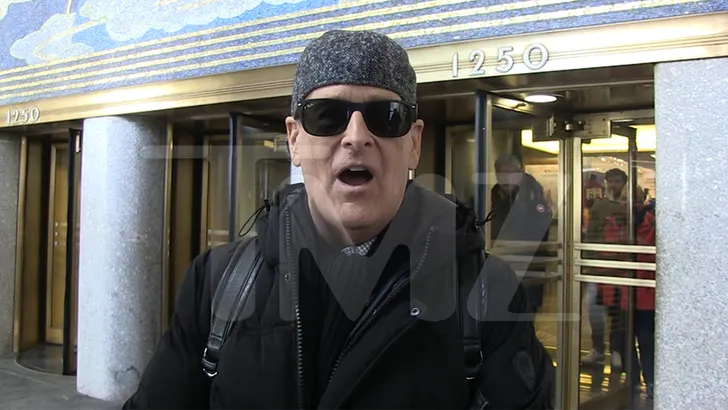

TMZ.com
Dave Coulier — who played Uncle Joey on “Full House” — is a 2-time cancer survivor … and he told us the key to his success in fighting the monstrous disease.
When we caught him out in NYC today, Dave told us … “Early detection is everything, so talk to your doctors. Get those PET scans, get those MRIs, get those CT scans, because it can save your life. I’m living proof of that.”
So if you’ve been putting off a doctor’s appointment … Cut. It. Out!
The 66-year-old actor is now in remission from tongue cancer … after finishing treatment for Stage 3 non-Hodgkin lymphoma in 2025.
While the journey was rough, Dave credited his sense of humor and fellow “Full House” alum, John Stamos with helping him get through his toughest days while on the road to recovery.
Watch the video to find out what Dave says is next for him after becoming cancer-free.
Entertainment
Young and the Restless: Mariah’s Suicidal Spiral Puts Dominic in Deadly Peril!

Young and the Restless suggests Mariah Copeland (Camryn Grimes) is taking a dangerous turn, and she could put Dominic Chancellor (Ethan Ray Clark) in real danger.
We’re going to talk about Mariah’s terrifying vow that she makes this week. It is a little scary and could mean danger for the kid.
Mariah Panics on Young and the Restless
This week, Dominic is still with Mariah as she is hustling him away from Genoa City with an imaginary Ian Ward (Ray Wise) along for the ride now and then. Mariah takes a break from driving to rest up and take a nap. She wakes up and panics because she sees that Dominic is gone.
Mariah thinks that Dominic left her, went back to his parents, and doesn’t want to be with her anymore. But then Mariah really wakes up and Dominic is still in the car with her and is also asleep. It turns out that it was a nightmare within a nightmare.
Mariah Copeland’s Terrifying Nightmares and Mental Health Spiral on Y&R
This dream has her panicking, and Mariah realizes that she cannot ever lose Dominic. This is all taking Mariah back to a dark place. She is thinking about how she was taken from Sharon Newman (Sharon Case). In Mariah’s mind, that parallels when Dominic was taken from her after she gave birth—even though he is biologically Abby Newman‘s (Melissa Ordway) and Devon Hamilton’s (Bryton James) child.
Mariah is thinking back to when a nurse stole her and sold her to Ian Ward as a baby. He then raised Mariah in his cult, The Path. When she was a teen, creepy Ian married her. Thankfully, Mariah was rescued. The marriage wasn’t consummated, and she was eventually reunited with Sharon and they’ve built a good relationship.
In a recent interview, actress Camryn Grimes said that this Dominic kidnapping storyline reminds her of when she first started on Y&R back when she was just seven years old. She said one of her first storylines on The Young and the Restless was when Cassie Newman (Camryn Grimes) was kidnapped and held for an entire year.
Parallels to Cassie Newman’s Kidnapping and Y&R History
To refresh you if you don’t remember, back in the early ’90s, Sharon’s oldest child, Noah Newman (now Lucas Adams), was born premature and suffered complications. He wasn’t expected to survive. Sharon’s best friend, Grace (Jennifer Gareis), went looking for Sharon’s firstborn child, a little girl named Cassie that Sharon had given up at birth as a teen mom.
Back then, Sharon didn’t know there were twins; that was a whole retcon. Grace thought that if she could find Cassie and bring her back, it would be a comfort to Sharon when Noah ultimately didn’t survive. But then Sharon’s newborn baby, Noah, fully recovered.
Grace decided she was going to keep Cassie for herself and never tell Sharon. In the end, Grace wound up keeping Cassie for a whole year. But at least Sharon got her daughter back, even though Cassie tragically died after a car accident as a young teen.
Mariah’s Chilling Vow to Keep Dominic at Any Cost on Young and the Restless
There are definitely some valid comparisons between what Grace did by kidnapping Cassie and how Mariah has now kidnapped Dominic. Camryn Grimes said in that same recent interview that she’s come full circle. At the age of seven, she played the kidnapped child, Cassie. Now, Mariah is basically in Grace’s shoes as the kidnapper, and Dominic is in Mariah’s place.
Things get a lot scarier this week when Mariah says shocking things while talking to Dominic, who thankfully is still asleep in the backseat of the car. It gets really creepy because Mariah starts referring to herself as Dominic’s mommy.
She says nothing will get in the way of them being together. In fact, Mariah says she will die before she lets anybody take Dominic away from her. That is absolutely terrifying because Devon and Abby are getting help from GCPD Detective Burrow (Matt Cohen), and they are about to be on Mariah’s trail to take back their son.
Abby Newman’s and Devon Hamilton’s Desperate Plan to Rescue Dominic on Y&R
Mariah may panic, and there is no telling what she could do. She may pull a “Thelma and Louise” and drive them off a cliff or into a tree—something crazy like that. Just as she is telling Dominic that she’d rather die than be apart from him, we have Tessa Porter (Cait Fairbanks), Abby, Sharon, and Devon debating whether Mariah is a danger to Dominic or not.
Nobody seems to think that Mariah would really hurt Dom, but they also have no idea what her mindset is at this point because she is in a severe mental health spiral. Mariah’s outlook is that if she can’t have Dominic, then Abby and Devon can’t have him either.
Mariah has completely detached from reality. She thinks that Dominic is really her son. She is increasingly certain that the only way to have a happy life is together as mother and son. If Mariah feels threatened and thinks she’ll lose Dominic, things could get dangerous fast.


Tessa Porter’s Faces a Hard Choice as Her Marriage Crumbles
This week, the detective, Abby, and Devon set a trap for Mariah. Plus, Abby has made a video they are taking public that is a plea to bring Dominic back home to his parents. Devon has all his radio stations playing Tessa’s music, hoping that might penetrate the fog and get Mariah to stop what she’s doing.
Right now, all of them are doing everything they can to save Dominic and get Mariah to back down. Tessa told Abby and Devon that even though Mariah is in pain, she knows what she’s doing is wrong. Tessa is insisting that Mariah is behaving terribly.
To me, it sounds like Tessa is mentally cutting ties with Mariah. She told Sharon she doesn’t know Mariah anymore. Tessa is scared of this version of Mariah and she has to be worried about what she might do to their daughter, Aria Porter Copeland.
The Future of Mariah and Tessa Porter After the Breakdown
It’s clear that Mariah has prioritized Dominic over Aria Porter Copeland, Tessa, and their marriage. I think Tessa is done fighting for her marriage at this point. Mariah kidnapping Dominic has pushed Tessa about as far away as she can get.
She’s going to lean into Daniel Romalotti (Michael Graziadei). Eventually, when Mariah comes out of this, she’s going to get help. They’ll clear Ian out of her brain once and for all, but I think it’s going to be too late by then. Tessa will have probably divorced her, taken sole custody of Aria Porter Copeland, and be in a serious relationship with Daniel.
Once again, Mariah is going to have lost her family and she’ll be devastated. It all ties back to Ian and this awful start to her life that was no fault of her own. Mariah may never forgive herself for breaking her family apart while having a breakdown.
Right now, it is very worrisome that Mariah is saying she’d rather die than be apart from Dominic. Once she realizes Abby and Devon are coming for them, she may put her and Dominic’s lives at risk. Mariah is completely unhinged, and since we are in February sweeps, things could get scary soon.
-

 Crypto World7 days ago
Crypto World7 days agoSmart energy pays enters the US market, targeting scalable financial infrastructure
-

 Politics7 days ago
Politics7 days agoWhy is the NHS registering babies as ‘theybies’?
-

 Video3 days ago
Video3 days agoWhen Money Enters #motivation #mindset #selfimprovement
-

 Fashion7 days ago
Fashion7 days agoWeekend Open Thread – Corporette.com
-

 Tech2 days ago
Tech2 days agoWikipedia volunteers spent years cataloging AI tells. Now there’s a plugin to avoid them.
-

 Politics4 days ago
Politics4 days agoSky News Presenter Criticises Lord Mandelson As Greedy And Duplicitous
-

 Crypto World6 days ago
Crypto World6 days agoU.S. government enters partial shutdown, here’s how it impacts bitcoin and ether
-

 Sports6 days ago
Sports6 days agoSinner battles Australian Open heat to enter last 16, injured Osaka pulls out
-

 Crypto World6 days ago
Crypto World6 days agoBitcoin Drops Below $80K, But New Buyers are Entering the Market
-

 Crypto World4 days ago
Crypto World4 days agoMarket Analysis: GBP/USD Retreats From Highs As EUR/GBP Enters Holding Pattern
-

 Business14 hours ago
Business14 hours agoQuiz enters administration for third time
-

 Crypto World7 days ago
Crypto World7 days agoKuCoin CEO on MiCA, Europe entering new era of compliance
-
Business7 days ago
Entergy declares quarterly dividend of $0.64 per share
-

 Sports4 days ago
Sports4 days agoShannon Birchard enters Canadian curling history with sixth Scotties title
-

 NewsBeat21 hours ago
NewsBeat21 hours agoStill time to enter Bolton News’ Best Hairdresser 2026 competition
-

 NewsBeat4 days ago
NewsBeat4 days agoGAME to close all standalone stores in the UK after it enters administration
-

 NewsBeat3 days ago
NewsBeat3 days agoUS-brokered Russia-Ukraine talks are resuming this week
-

 Crypto World2 days ago
Crypto World2 days agoRussia’s Largest Bitcoin Miner BitRiver Enters Bankruptcy Proceedings: Report
-

 Crypto World15 hours ago
Crypto World15 hours agoHere’s Why Bitcoin Analysts Say BTC Market Has Entered “Full Capitulation”
-
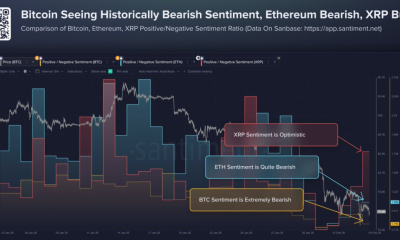
 Crypto World14 hours ago
Crypto World14 hours agoWhy Bitcoin Analysts Say BTC Has Entered Full Capitulation










